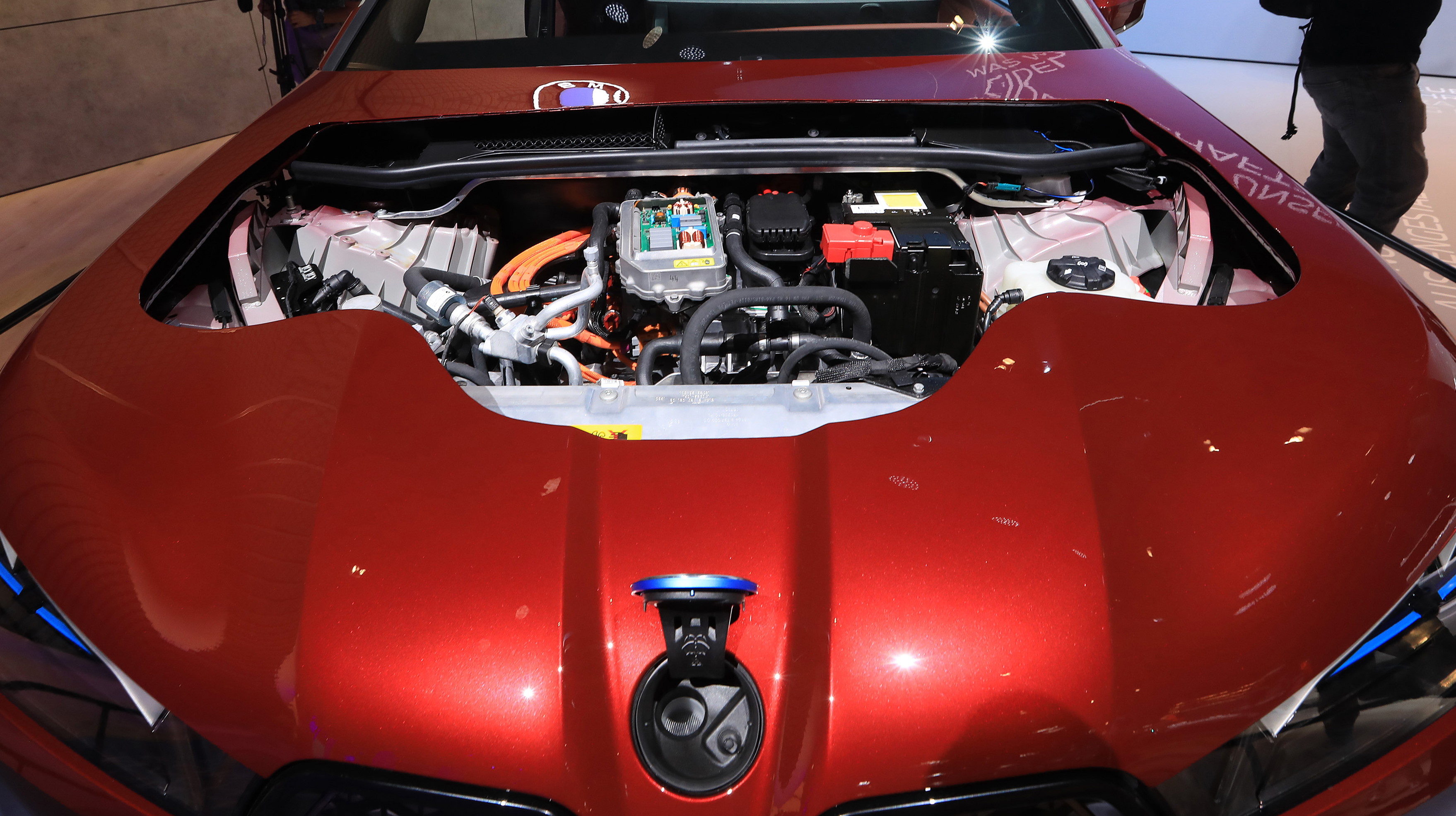BMW owners are figuring out how to pirate their heated seats
The intersection between physical and digital products is growing, and consumers are pushing back.

"You wouldn't download a car" is a meme-tweak of an infamous anti-piracy ad campaign from way back when. It's a ridiculous statement, but even so it's always inspired a silent, in-my-head reply: "You better believe I would if I could, buddy." I can't, of course, but I can now download one very small part of a car: The part that keeps my ass warm on cold Canadian nights.
We learned a couple weeks ago that BMW is test-driving a subscription model for seat warmers in its cars in South Korea, charging $18 per month or a one-time fee of $415 for access to the seat warmers in swanky new Beemers. It's a grotesque but probably inevitable outcome of the broken capitalist hell we have built for ourselves, and as with most things, the great likelihood is that it's going to get worse.
BMW's subscription scheme is doubly egregious because owners aren't paying for something extra, but just the ability to switch on stuff that's already in their cars. But a Wired report reveals that savvy drivers are learning that they can bypass these systems. It's still going to cost money in most cases, but far less than what BMW charges—and, importantly, BMW doesn't get any of it.
UK-based Litchfield Motors, for instance, focuses primarily on chip tuning—modifying or changing EEPROMs to boost a car's performance—but can also help owners out with other digital features including pay-to-use heated seats. Interestingly, owner Iain Litchfield said this sort of shenanigans isn't an entirely new thing for the auto industry, which has a long history of restricting access to new car features, most often without owners even being aware that they were missing.
"When the Nissan GTR was launched [in 2007] it had about 480 bhp, and the final editions had about 560 bhp,” Litchfield said. “All Nissan did was keep raising the turbo boost, 0.1 bar at a time. They’d say the exhaust or an intercooler was changed and they might be slightly different, but really it was the boost that gave the uplift."
The BMW situation is different, though, because it's ongoing and open-ended. Miss a payment and suddenly those fine Corinthian leather seats are going to feel awfully chilly in the early morning hours, even though the heater remains fully functional.
The concept of ownership is becoming increasingly hazy in the digital era. The games you own on Steam or Origin, for instance, are only yours for as long as your account is valid—lose that, and all your games go with it. Movies are headed in the same direction—purchased and "owned" on digital platforms rather than physical media—and the music industry is even farther down that road, with many people simply consuming music through subscription-based services like Spotify.
The biggest gaming news, reviews and hardware deals
Keep up to date with the most important stories and the best deals, as picked by the PC Gamer team.
But while software and music piracy have been with us for as long as computers and recorders have been around, it's a relatively new phenomenon in the realm of physical products. And it's a problem that could potentially bite a lot of people in the ass in some very unexpected ways. A really interesting 2017 Vice report, for instance, revealed that farmers in Nebraska were being forced to resort to piracy to crack the firmware in their big, expensive John Deere tractors, because the embedded software prevents "unauthorized" repairs. That means when something goes wrong, only John Deere dealers and approved service centers are allowed to work on them.
BMW's subscription model also invites questions about their long-term viability. What happens when BMW decides to end service support? Maybe it'll release an unlock patch (which maybe you'll have to pay for, again), but maybe it'll decide that it's not economically feasible and just pull the plug. Regardless of which path it (or any company) follows, relying on corporate good will for the continued functionality of a product you've bought and paid for is not a smart or sustainable consumer strategy.
Heated seats aren't in quite the same category as "the machine upon which my livelihood depends has died in the middle of the cornfield and the closest repair center is an hour away and backlogged until next Tuesday." But they both reflect the increasingly mainstream ways that the digital world is intersecting with the physical, and hint at the ugly consumerist future we're building for ourselves.

Andy has been gaming on PCs from the very beginning, starting as a youngster with text adventures and primitive action games on a cassette-based TRS80. From there he graduated to the glory days of Sierra Online adventures and Microprose sims, ran a local BBS, learned how to build PCs, and developed a longstanding love of RPGs, immersive sims, and shooters. He began writing videogame news in 2007 for The Escapist and somehow managed to avoid getting fired until 2014, when he joined the storied ranks of PC Gamer. He covers all aspects of the industry, from new game announcements and patch notes to legal disputes, Twitch beefs, esports, and Henry Cavill. Lots of Henry Cavill.

